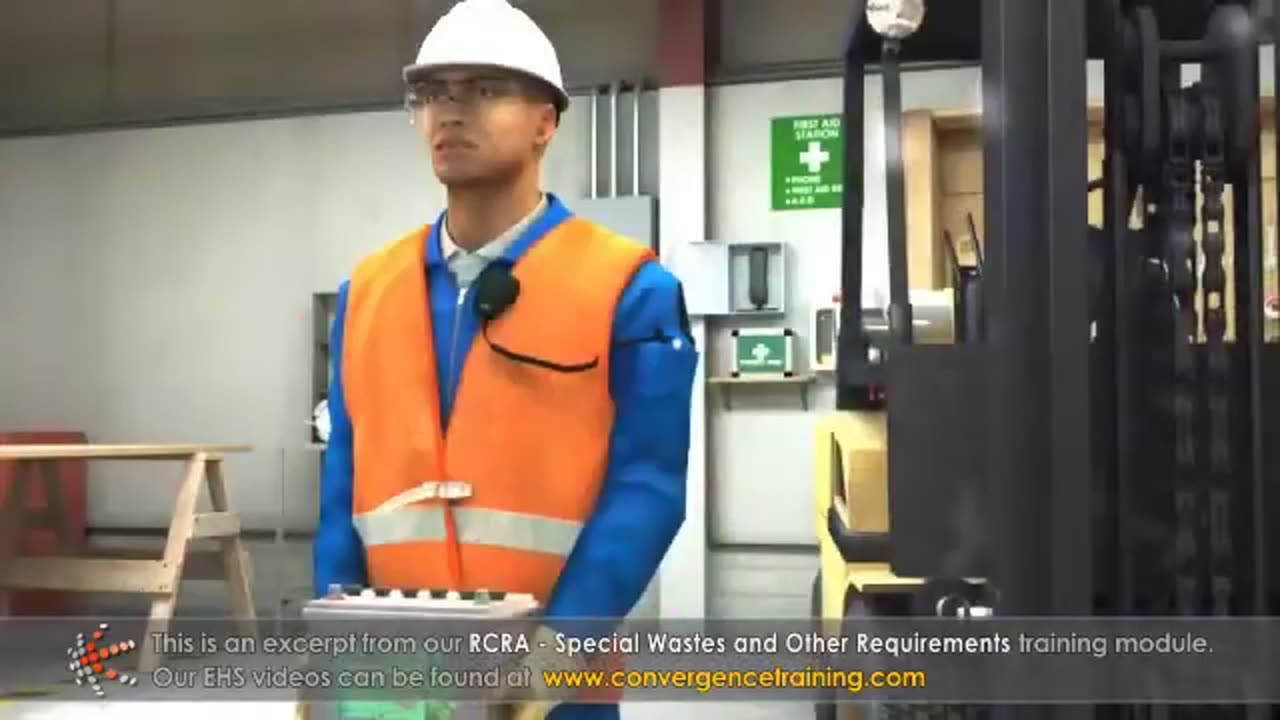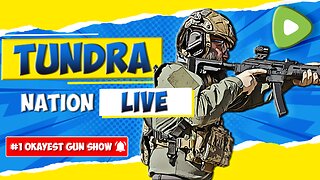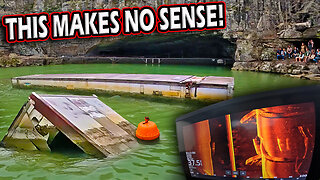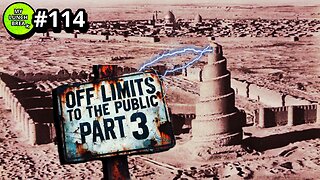Premium Only Content

RCRA - Special Wastes and Other Requirements Training
### **RCRA Training: Special Wastes and Other Requirements**
This training covers the unique requirements for managing special wastes under RCRA and addresses additional regulatory considerations to ensure compliance. Special wastes may include certain excluded or conditionally regulated wastes, universal wastes, and used oil. Here's a detailed outline:
---
### **1. Introduction to Special Wastes**
- **What Are Special Wastes?**
- Categories of waste that require specific management practices under RCRA.
- Examples: Universal waste, used oil, excluded hazardous waste streams, and recyclable materials.
- **Purpose of Special Waste Regulations**:
- Streamlining waste management.
- Encouraging recycling and proper disposal to protect the environment.
---
### **2. Universal Waste Management**
- **Definition of Universal Waste**:
- Hazardous waste streams commonly generated by businesses and households.
- Examples: Batteries, pesticides, mercury-containing equipment, and lamps (fluorescent bulbs).
- **Universal Waste Handler Categories**:
- **Small Quantity Handlers (SQHUWs)**: <5,000 kg at any time.
- **Large Quantity Handlers (LQHUWs)**: ≥5,000 kg at any time.
- **Management Standards**:
- Proper labeling (e.g., "Universal Waste Lamps").
- Storing in intact, closed containers.
- Compliance with accumulation time limits (1 year).
- **Training Requirements**:
- Employees must be trained on proper handling and emergency response.
---
### **3. Used Oil Management**
- **Definition of Used Oil**:
- Any oil refined from crude or synthetic that has been used and contaminated.
- Examples: Motor oil, hydraulic fluids, and lubricants.
- **Used Oil Regulations**:
- Proper storage in leak-proof containers or tanks labeled “Used Oil.”
- Avoiding mixing used oil with hazardous waste unless exempted.
- Recycling and disposal requirements.
- **Spill Response**:
- Steps for containing and reporting spills.
- Proper disposal of contaminated cleanup materials.
---
### **4. Conditionally Exempt and Excluded Wastes**
- **Conditionally Exempt Small Quantity Generators (CESQG)**:
- Generators producing <100 kg hazardous waste per month.
- Management requirements for exempted waste.
- **Excluded Wastes**:
- Specific exclusions under RCRA (e.g., household hazardous waste, agricultural waste).
- Management practices for conditionally excluded waste streams (e.g., wastewater discharges regulated by the Clean Water Act).
---
### **5. Recyclable Materials and Waste Minimization**
- **Recyclable Hazardous Wastes**:
- Used solvents, metals, and spent catalysts.
- Ensuring proper documentation for recycling.
- **Waste Minimization Strategies**:
- Source reduction, material substitution, and process optimization.
- Tracking waste generation to identify reduction opportunities.
---
### **6. Additional RCRA Requirements**
- **Air Emissions (Subpart CC)**:
- Managing air emissions from tanks, containers, and treatment units.
- Installing vapor recovery systems if required.
- **Underground Storage Tanks (USTs)**:
- Requirements for hazardous waste stored in USTs.
- Preventing leaks and monitoring for corrosion.
- **Mixed Waste Management**:
- Handling hazardous waste mixed with radioactive materials.
- Compliance with both RCRA and Nuclear Regulatory Commission (NRC) standards.
---
### **7. Recordkeeping and Reporting**
- Maintaining records for special waste storage, transportation, and disposal.
- Reporting universal waste and used oil management activities during inspections.
- Retaining records for at least three years.
---
### **8. Common Violations and Best Practices**
- **Common Violations**:
- Improper labeling of universal waste.
- Failure to document used oil disposal.
- Mixing incompatible waste streams.
- **Best Practices**:
- Use of clear signage and dedicated storage areas.
- Regular staff training and refresher courses.
- Conducting self-audits to identify and correct deficiencies.
---
### **9. Emergency Response for Special Wastes**
- Spill containment and reporting procedures for universal waste and used oil.
- Availability of spill kits and fire extinguishers.
- Coordination with local emergency responders.
---
### **10. Closing and Resources**
- Recap of special waste requirements and management practices.
- Distribution of checklists for universal waste, used oil, and recyclable materials.
- Resources for further reference:
- EPA’s Universal Waste Guidelines.
- RCRA Online Database.
- Q&A session to address facility-specific concerns.
---
**Optional Enhancements**:
- **Interactive Exercises**: Practice labeling and segregating special waste streams.
- **Quizzes and Assessments**: To evaluate participants' understanding of RCRA requirements.
- **Resource Materials**: Fact sheets, quick-reference guides, and templates for recordkeeping.
Would you like assistance with creating materials such as training slides, inspection checklists, or interactive exercises for this topic?
-
 7:58
7:58
HSESafetyInformation
5 days agoAuthentic Peshawari Rosh _ Namkeen Gosht Recipe __ Traditional KPK and Baluchistan
441 -
 34:27
34:27
The Connect: With Johnny Mitchell
16 hours ago $11.17 earnedCan He Stop Them? Inside Trumps War On Mexican Drug Cartels & The New Era Of Mexican Organized Crime
28.3K13 -
 2:33:15
2:33:15
Tundra Tactical
8 hours ago $9.36 earnedLuis Valdes Of GOA Joins The Worlds Okayest Firearms Live Stream!!!
30.7K -
 1:03:41
1:03:41
Man in America
17 hours agoAre Trump & Musk the COUNTER-ELITES? w/ Derrick Broze
76.5K44 -
 3:45:08
3:45:08
DLDAfterDark
8 hours ago $9.75 earnedDLD Live! SHTF Handguns! Which Would You Choose?
41.9K2 -
 1:50:38
1:50:38
Mally_Mouse
11 hours agoSaturday Shenanigans!! - Let's Play: Mario Party Jamboree
52.2K -
 1:13:00
1:13:00
Patriots With Grit
15 hours agoWill Americans Rise Up? | Jeff Calhoun
43.1K13 -
 14:55
14:55
Exploring With Nug
15 hours ago $11.27 earnedWe Found Semi Truck Containers While Searching for Missing Man!
59.4K7 -
 27:57
27:57
MYLUNCHBREAK CHANNEL PAGE
22 hours agoOff Limits to the Public - Pt 3
133K65 -
 38:07
38:07
Michael Franzese
15 hours agoLeaving Organized Crime and Uncovering Mob in Politics: Tudor Dixon and Michael Franzese
106K15